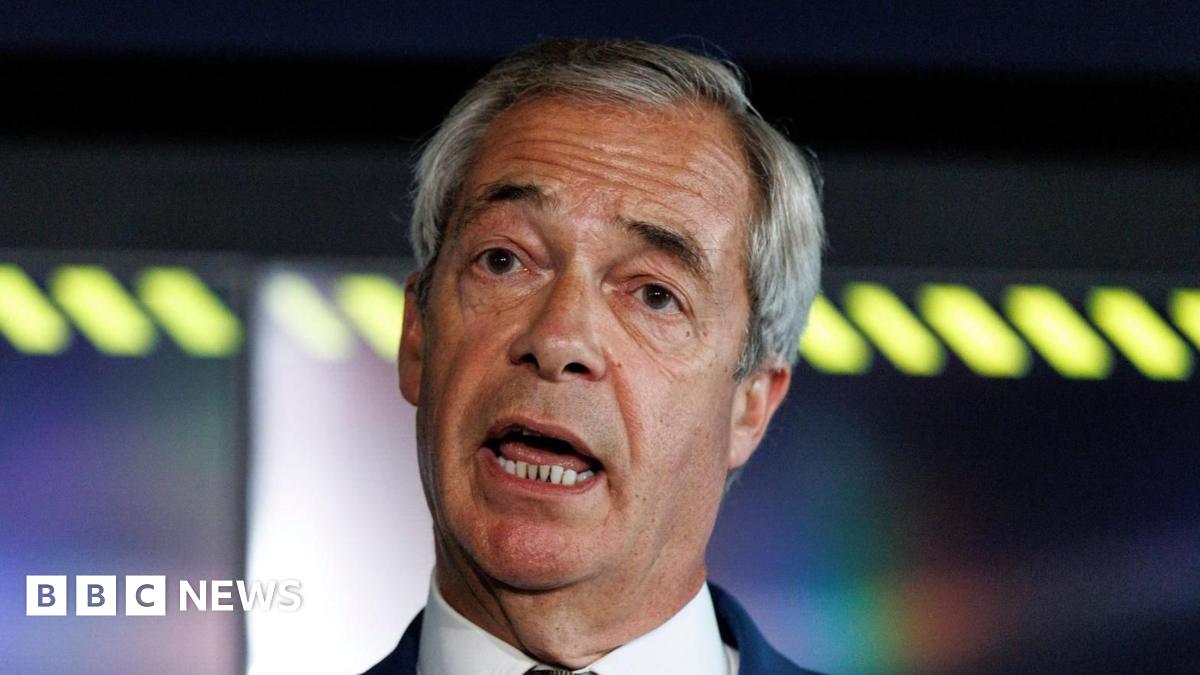Nigel Farage urges PM to appoint Reform peers to House of Lords

The prime minister is under no constitutional obligation to elevate members of opposition parties, but will often ask opposition leaders to nominate individuals for peerage.
A Downing Street spokesperson said: "The process for appointments to the House of Lords follows established conventions and is guided by advice from the House of Lords Appointments Commission and other relevant bodies.
"While political parties may make representations regarding peerage nominations, decisions are made in line with long-standing procedures."
Sources familiar with the appointment process told the BBC that, while traditionally the main opposition party is offered the chance to nominate some peers, there are no set rules and the decision was ultimately up to the prime minister of the day.
The House of Lords Appointments Commission does not advise on which parties should nominate peers but vets those whose names are put forward.
Asked about Farage's letter, Defence Secretary John Healey told LBC "the same Nigel Farage that called for the abolition of the House of Lords" now wanted to fill it with "his cronies".
The House of Lords is a part of Parliament. It scrutinises the work of government and is independent from the House of Commons, where MPs sit.
Members of the Lords are called peers. Like MPs, they scrutinise the work of government and recommend changes to proposed legislation. There are currently more than 800.
Once in the House of Lords, peers can change their political affiliation.
For example, Lord Pearson of Rannoch sat as a Conservative peer from 1990 to 2004, but switched to the UK Independence Party.